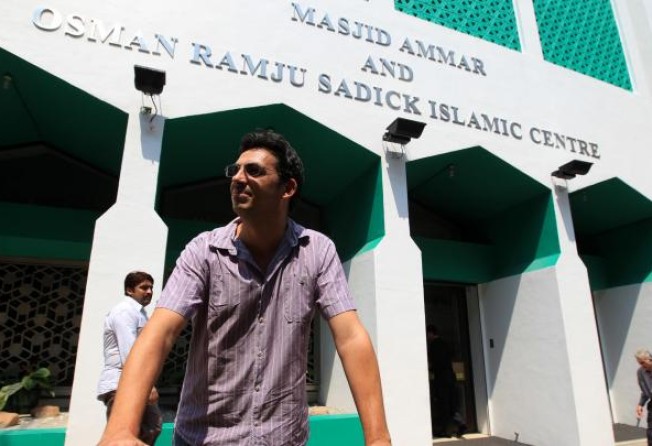Muslims feel free in Hong Kong but left out
New book based on interviews finds that friction is not based on religion, but ethnic minorities' struggle to contribute to society

Hong Kong's Muslims have religious freedoms they cannot enjoy elsewhere in a unique city of hybrid cultures, but have to put up with prejudice and, often, overt discrimination.
These are some of the conclusions in a new book by Chinese University anthropology lecturer Paul O'Connor, 36, who moved from England 12 years ago to study the city's unique relationship with Islam.
"For a social scientist, Hong Kong is this magical laboratory where you can test and look at things that you don't get the opportunity to look at in other places," he said.
Published by Hong Kong University Press, Islam in Hong Kong was based on a five-year PhD about how Islam works as a minority religion in a Chinese environment with no strong national ethos. The book was supplemented by interviews with local Muslims, many 13 to 17 years old.
There are about 250,000 Muslims in Hong Kong, the bulk of whom are Indonesians (148,000). Ethnic Chinese Muslims number 30,000 followed by 17,000 South Asian Muslims, most of whom are Pakistani.
O'Connor found that because there was no strong Christian heritage in Hong Kong, there was no friction based on monotheistic ideals and so religion was viewed separately to race, unlike the situation in Britain.
While there was prejudice, it was not related to religion, and racism was manifested in different ways.
"Racism does exist and it's a big thing in Hong Kong but the experience isn't one of interpersonal problems; it's more to do with a structural problem and a colonial hangover," he said from a Wan Chai park on Oi Kwan Road, an area he studied because of the nearby mosque, Islamic community centre, halal canteen and Muslim cemetery.
Muslims "shrug off popular racism", O'Connor writes, because they value the freedoms that come with living in the city.
"The Chinese might be critical of them racially, but it's never religiously based. So if their religion is accepted in Hong Kong, which it tends to be, they can basically have a fairly peaceful existence."
One theme that did emerge was the struggle for ethnic minorities to contribute to society.
"Some Pakistani kids said racism wasn't what was bothering them, it was not being able to learn Chinese at school. That's a different angle of racism, an angle of always being thought of as an outsider, as a foreigner.
"I spoke to some kids and they wanted to join the PLA. They saw their future in Hong Kong but they didn't have a network and framework set up through education to allow them to really contribute to Hong Kong."
But for Chinese Muslims, it was a "very different experience", O'Connor said, because "they are hidden so they can choose when they reveal their religion".
"The book is not just about religion, it's about minorities, about the people that make up Hong Kong and give it its unique identity. This is what people are going out and trying to preserve at the moment," he said, referring to the mass protests against proposed national education, labelled as brainwashing by critics.